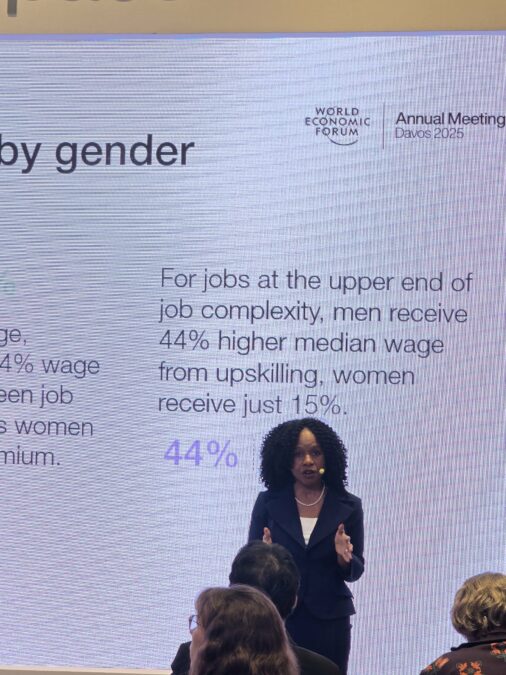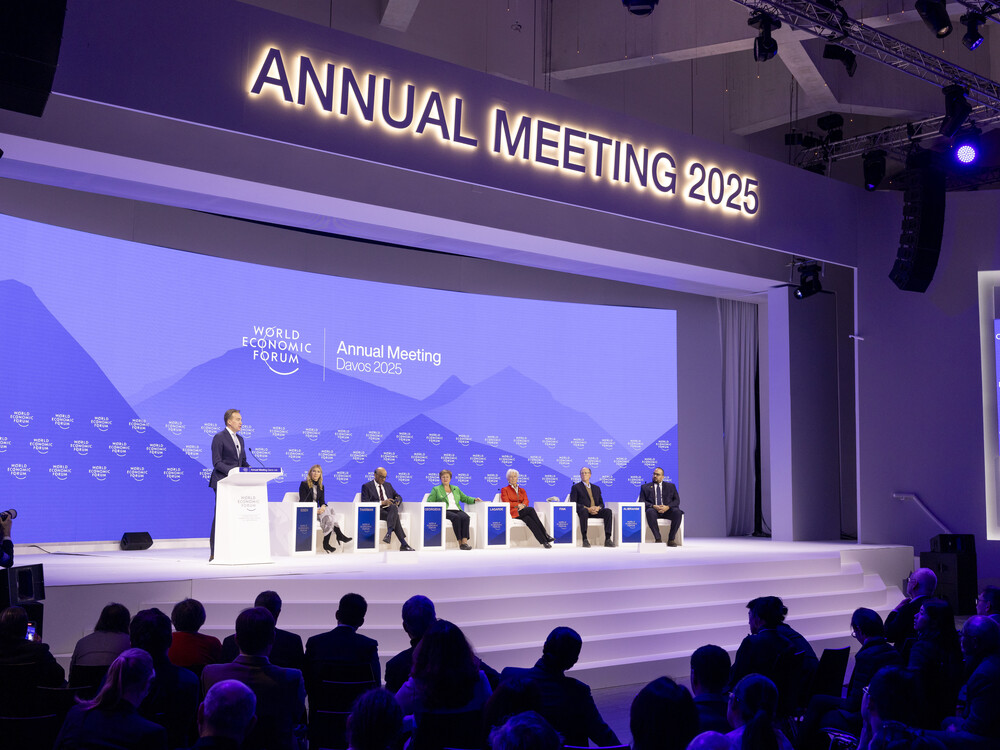Davos Switzerland – The rapid adoption of AI and automation is redefining labor markets, reshaping industries, and transforming skills globally, Dr. Nela Richardson, Chief Economist and ESG Officer at ADP told TRENDS in an exclusive interview on the sidelines of the World Economic Forum at Davos.
Dr. Richardson, spoke during her session titled “World in Numbers: Jobs and Tasks.” Drawing from insights in the Future of Jobs Report 2025, Dr. Richardson emphasized the dual forces of opportunity and risk that AI introduces to labor markets.
“It’s always great to have the global community come together to talk about big issues,” Dr. Richardson told TRENDS, stressing ADP’s focus on the worker as the singular unit of the labor market. She highlighted the convergence of mega trends like generative AI, climate transitions, demographic shifts, and geographical realignments.
“What does it mean for the workforce? And how can we prepare the workforce for a future based in technology?” she asked.

Looking ahead to 2025 and beyond, Dr. Richardson pointed to the immense opportunities for transformation but warned of the accompanying risks. “Without skills, without scaling the workforce and preparing them for tomorrow, they’re the biggest risk a company has because its largest investment is its people,” she explained.
Dr. Richardson identified AI as a critical force unlike any other technological advancement due to its digital reach.
“Technology is inevitable; it always reshapes us. AI is just the latest iteration, but it promises to be even broader because its reach is digital,” she said. She emphasized the unparalleled scale of AI’s impact, comparing it to past industrial and technological revolutions. “That’s what makes it such a massive opportunity for the world,” she added.
Reflecting on the findings of the Future of Jobs Report, Dr. Richardson highlighted the critical gaps that need to be addressed, including the skills gap and the disconnect between employers and employees.
“If done right, the worker becomes more productive, and a more productive worker means a stronger economy,” she said, adding the potential for AI to drive economic growth if workforce development is prioritized. “I think that we have some gaps to fill. The skills gap, the gap between employers and employees. They’re important even within their own companies.”








